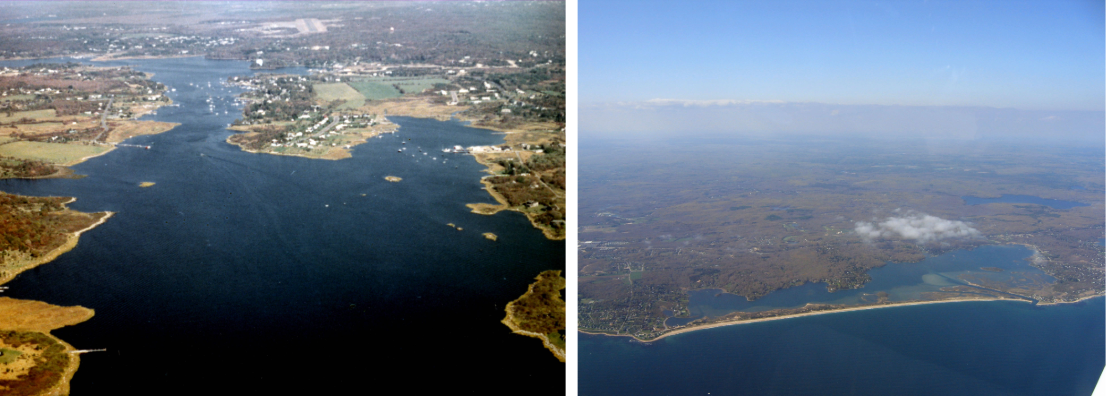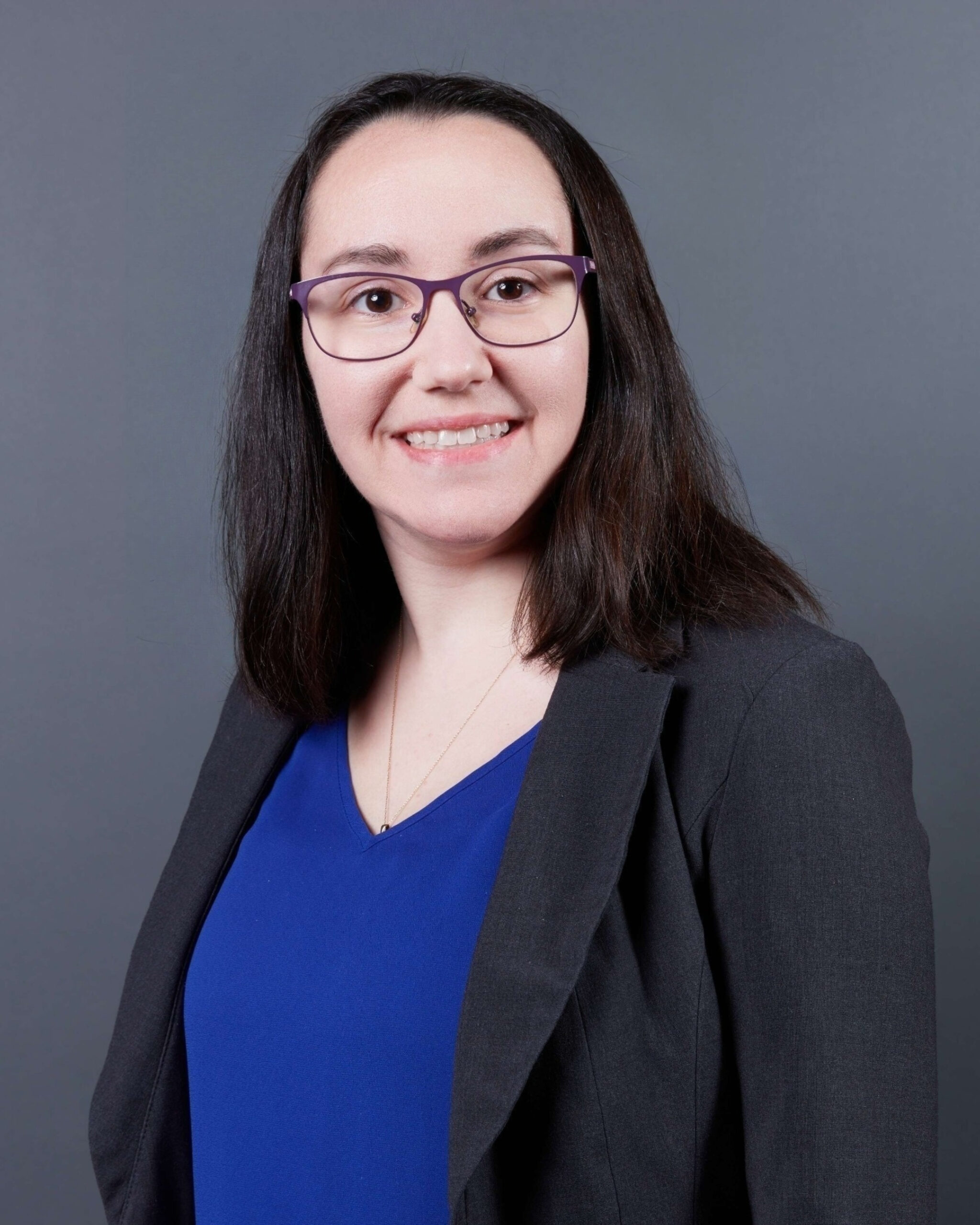By Kimberly Cartier
From June 3 to 7, ten environmental journalists were invited as fellows to the University of Rhode Island’s Metcalf Institute for an immersive workshop to learn about hydrology, climate science, and water-related justice issues. The journalists—freelancers and staff journalists; local beat reporters and reporters at international outlets; writers, photographers, and videographers—came from across the U.S., tribal nations, Brazil, the Philippines, and the U.K.. That week, they spent as much time in the field as they did in the classroom, slogging through Rhode Island’s estuaries and coastal environments to experience how scientists gather data on these vulnerable ecosystems and bring that knowledge into their reporting.
On the second day of the workshop, the journalists gathered for a roundtable discussion with experts to talk about water justice and collaborating with communities for equitable science and reporting. I was honored to be invited to speak at the roundtable discussion and represent AGU’s work on these issues through Eos and Thriving Earth Exchange. I joined fellow panelists Bernardo Motta (Roger Williams University), Kate Mulvaney (U.S. Environmental Protection Agency), and Cassius Spears, Jr. (Narragansett Indian Tribe) in discussing these issues.

(left) Pawcatuck River, Credit: CorpsNewEngland, CC BY-ND 2.0
(right) Rhode Island Coastline, Credit: Larry Strong, CC BY-NC-SA 2.0
A key facet of our discussion was how scientists and journalists can employ non-extractive practices in addressing the water-related issues that communities experience. In other words, how can we prevent so-called parachute science and parachute reporting? In those extractive practices, outsiders jump into a local issue, mine a community for its knowledge, and then take that information back to the wider world for purposes that don’t actually aid the community or help it address the original problem. Such behavior is selfish at best and actively harmful to a community at worst.
Thriving Earth Exchange’s community-forward model is an amazing example of an immersive, non-extractive, and inclusive approach to community science. The journalists were very excited to learn about how Thriving Earth Exchange engages with and empowers communities to address local issues with science-based solutions. Although I’m not part of this amazing team, I was excited to share examples of how TEX projects have enabled community science by, for example, teaching community scientists how assess local water quality, modelling local flood risk, designing more resilient coastal infrastructure, or connecting community leaders with subject matter experts to advise them on ongoing projects. I walked the journalists through Thriving Earth Exchange’s online resources like project descriptions and interactive maps so that they could learn about ongoing efforts in their local area to report on. Some were pleasantly surprised to learn that there were Thriving Earth Exchange projects ongoing not far from their homes and seemed interested in reaching out to TEX and its local partners to learn more.
Just as important to a project’s success is how and by whom the story is told. Too many examples exist where reporting fails to include voices from the community at the center of the story. Even more examples exist of reporters speaking on behalf of a community without their permission or input, perpetuating harmful stereotypes or narratives about a community, framing a story to only serve the interests of those in power, and failing to uplift historically excluded voices.
 Much of our roundtable discussion surrounded how to avoid those problematic reporting techniques even, and especially, in the fast-paced news environment. Here, Eos’s community-centric, solutions-forward reporting really resonated with the workshop participants. Eos is increasingly using the “nothing about us without us” model of reporting, a framework championed by the disabled community but whose principles apply beyond advocacy circles. Here’s the basic principle: Reporting on science that affects people’s lives must include or center the voices of those affected. For example, a story about a town affected by sea level rise must include the voices of town residents, especially those whose houses have high flood risk. Eos has been practicing this approach for years with our news reporting and also through our Science Updates and Opinion sections, which provide a space for scientists and community members to directly tell their own stories.
Much of our roundtable discussion surrounded how to avoid those problematic reporting techniques even, and especially, in the fast-paced news environment. Here, Eos’s community-centric, solutions-forward reporting really resonated with the workshop participants. Eos is increasingly using the “nothing about us without us” model of reporting, a framework championed by the disabled community but whose principles apply beyond advocacy circles. Here’s the basic principle: Reporting on science that affects people’s lives must include or center the voices of those affected. For example, a story about a town affected by sea level rise must include the voices of town residents, especially those whose houses have high flood risk. Eos has been practicing this approach for years with our news reporting and also through our Science Updates and Opinion sections, which provide a space for scientists and community members to directly tell their own stories.
I shared with the journalists examples of Eos reporting that take this approach and described my own methods of reporting on community-science issues. Workshop fellows learned about Eos’s coverage of how flooding in New Orleans disproportionately affects Black neighborhoods, which highlighted local organizations tackling this issue; how Grand Caillou/Dulac Band of Biloxi Chitimacha Choctaw leaders are fighting to save their disappearing coastal lands in Louisiana; how factoring flood probabilities into real estate listings could harm lower income homebuyers; and how recreational lakes in North Carolina remain polluted by the legacy of coal mining. I was proud to share so many examples of Eos reporting that not just included, but centered, voices from communities affected by the problems at hand. I had more examples than I had time to share them!
During the roundtable, all of us in the room spent time talking about the importance of developing long-term, lasting trust between communities, scientists, and science communicators. Too often, the communities most affected by water-related injustices have already been burned by callous individuals who pursued these stories for their own gain without considering the lives affected. Those communities are understandably wary of newcomers who seek to come in and address those same problems.
Although an individual scientist or reporter today may not have been involved in a community’s negative experience, we, including AGU, must recognize that we may represent those same harmful institutions in a community’s mind. We need to understand that trust must be earned and new relationships must be built. In many cases, we are not starting from scratch, but from a trust deficit.
Understanding, addressing, and reporting on the problems communities face must be a joint effort between stakeholders. Only by developing mutually beneficial and trusting relationships can these scientific-based problems be solved in a just and equitable way.

Kimberly Cartier,
Eos Senior Science Reporter





